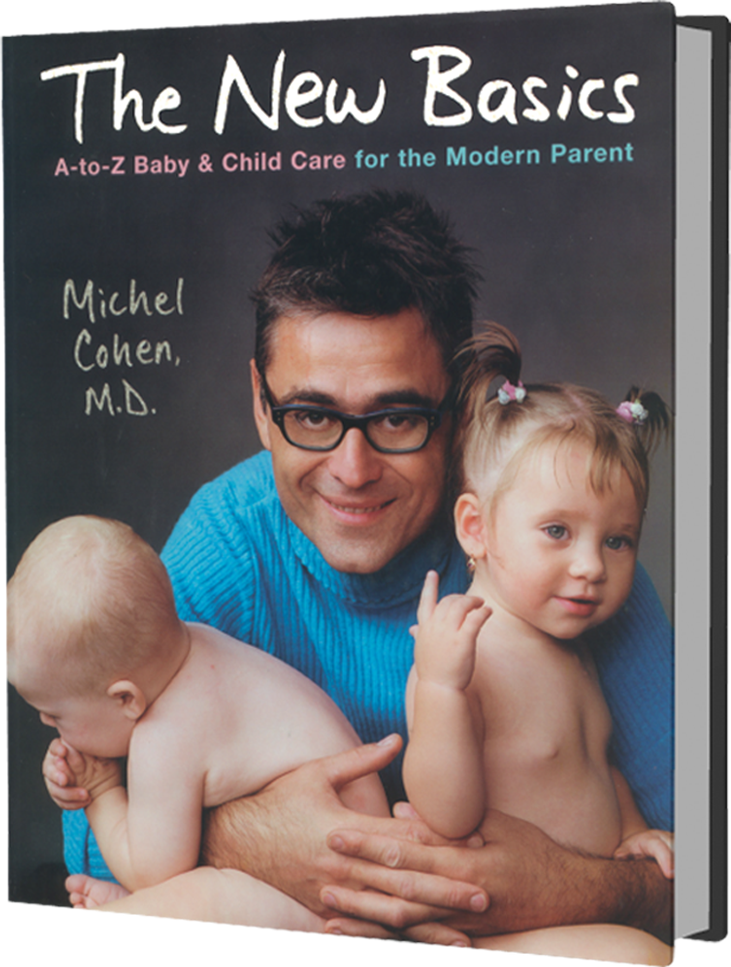
Weight Concerns
In the First Days
I’m not sure why we’re still in the habit of weighing babies daily in the hospital. In the first few days of life, newborns will normally lose up to 10 percent of their birth weight. (For the sleep-deprived among you, this amounts to about a pound for an average eight-pounder). If you’re breast feeding, recording that weight loss may feel discouraging and incite you to plump Lucy up with a little formula, which could interfere with the breast-feeding process [See: Breast Feeding].
Rest assured, the weight Lucy is losing represents mostly water, not muscle or fat. In utero, the water content of a baby’s body is significantly higher, and she sheds it almost immediately after birth. At this early stage, the percentage of weight loss doesn’t reflect the baby’s ability to feed, so there is no reason to record it.
In the First Month
By ten to fifteen days of age, weight becomes a better assessment of intake, since most newborns have returned to their birth weight. There are variations: Some newborns will be several ounces above their birth weight, which is reassuring and never indicates overfeeding. Some may still weigh significantly less than their birth weight, and although this is not necessarily cause for alarm, the question is whether the intake is adequate.
For bottle-fed babies, this is no-brainer: you just count the ounces going in. After a couple of sleepy days, a newborn typically ingests about twenty to thirty ounces per day. If Lucy is consuming this much and keeping it down, she’s in good shape.
Assessing a breast-fed baby’s intake is a little trickier. If Lucy nurses spontaneously about eight times within a twenty-four-hour period, and if you’re changing a few wet diapers a day, these are good signs that breast feeding is going well. The appearance of several seedy and liquid stools is also an encouraging sign, but it’s not essential; newborns can absorb almost all the milk’s nutrients and produce very little waste. Overall, the best sign that Lucy is eating enough is if you feel your breasts fill in before feedings and experience occasional leaking and if she’s nursing fairly happily and sleeping between feedings.
Some babies may take up to three weeks to reach their birth weight even when they’re feeding enough. If, however, Lucy is fretful between feedings, sucks voraciously on her fists, urinates small amounts, and if you don’t feel your breasts filling up, this may indicate that you’re not producing enough. If you have any
doubt, here’s a simple method to determine whether she is hungry or not. Offer her formula once after nursing and see what happens. If she is ravenous and gulps down the whole six-ounce bottle, then at least you know you are probably not producing enough milk. On the other hand, if she eats only a small amount or nothing and falls asleep on the bottle, your breast milk production is probably sufficient.
Many factors lead to insufficient production: You’re tired, the task of having to keep a human being alive with your milk is daunting, your hormones are acting up . . . you name it. In any event, the resulting anxiety and stress impede your production. Once you’ve established that your production may be insufficient, the first thing to do is to supplement with formula. Many mothers are wary of formula supplementation because they associate it with a sense of failure and think it means the end of breast feeding. Happily, this is not true. Temporary supplementation alleviates most of your stressors and lets you regain confidence, so you can relax and begin producing enough milk. I recommend the following method for supplementation and for returning to breast feeding exclusively, once you’ve determined that you’re producing enough milk.
• At first, supplement every feeding with unlimited formula but only after having offered Lucy the breast for a good twenty minutes even if it’s a struggle. Any formula variety will do [See: Formula].
• Each day, after a successful nursing session, skip one supplementation.
• Do this daily, until you’re no longer supplementing at all. As the days go by,
Lucy will rely more and more on the breast and less on the formula. Within ten days you have a very good chance of returning to breast feeding exclusively.
I’d be lying if I told you that this always works according to plan. At times Lucy will end up relying more on formula than on breast milk. But you have no choice; if she isn’t thriving because of insufficient lactation, she must be fed in some other way. Pumping your breasts to stimulate production could be counterproductive. On one hand, it may stimulate lactation, but on the other hand it’s so cumbersome that it might increase your stress level instead. See what works for you. Note: If the signs indicate that you aren’t producing enough, Lucy’s weight must be monitored biweekly by your doctor until she is gaining adequately.
In the First Six Months
Babies come in all shapes and sizes. It is a misconception that a chubby baby will eat more than a slim one. Like adults, babies have different metabolisms and different growth curves.
In the first six months of life, I weigh babies monthly. On average, Lucy will gain one to two pounds each month. But there is always room for variation (I’ve seen cases where a baby gains up to four pounds a month), and it’s not necessarily an indication that Lucy is being overfed. Babies are wonderfully regulated eating machines; if you feed them too much, you get it right back in the form of spitup. Formula-fed babies tend to be a little plumper than breast-fed babies, so adjust your expectations accordingly.
If she’s gaining less than a pound a month, that could be a warning sign that Lucy is not eating enough. Low weight gain is far less common in formula-fed babies, both because it’s easier to overfeed with a bottle—the food is more available—and because formula is more fattening. As a rough guideline, average formula intake is in the three- to four-ounce range for a month-old baby, and it gradually increases to the six- to eight-ounce range for a six-month-old.
If you’re nursing, you obviously can’t ascertain exactly how much she’s eating. The signs that indicate whether Lucy is getting what she needs are the same as those described above. If Lucy feeds every couple of hours, if your breasts are full before feeding and empty after, if she is not wailing all day in hunger, and if she sleeps peacefully between feedings, these are reasonable indications that you are meeting her demand. Her output can also be an indication: If you see plenty of urine and some stools (the latter number can vary greatly), she’s getting enough. In these cases, there’s no reason for formula supplementation. Some babies simply gain weight slowly, even though they’re getting enough nutrients. If you have any doubt as to whether you’re producing enough, supplementation with formula (as described above) may be necessary. Your doctor will monitor your baby’s weight until it reaches the desired level.
After Six Months
Between six and twelve months, babies will gain around a pound a month. If you look at a growth chart, you’ll see that during this phase, the curve flattens out. This is desirable; if Lucy’s length and weight continued to double every few months, you would soon end up with a gargantuan creature in your nursery. This flattening of the curve is even more pronounced in babies who are on their way to becoming slim. At this age, these healthy infants reveal themselves to be future lean toddlers by gaining a little less weight than their peers do.
By now, if the weight gain is insufficient, it is extremely unlikely that breast milk production is the cause. If Lucy were hungry she could practically ask for food, at least in her own language. Therefore, in the rare event that abnormal stunting of the weight occurs, your doctor would search for other digestive causes.
The introduction of solid food at around six months has little effect on weight gain at first. Until eight to ten months, a good part of the calories continue to come from the liquid diet. As before, parents of plumper babies should not worry about overfeeding at this age. Just make food available, and Lucy will self-regulate. The same strategy goes for the slim kids.




 MEDICATION DOSAGE
MEDICATION DOSAGE

